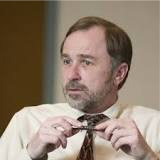|
Hermione Granger got it right when, facing the potion-master's test, she said: "This isn't magic - it's logic - a puzzle. A lot of the greatest wizards haven't got an ounce of logic; they'd be stuck here forever." - Harry Potter and The Sorcerer's Stone
| |
 |
WHY LOGIC?
Logic is fundamental to almost everything our students do.
- What they study. Computer science, mathematics, the natural sciences, the social sciences, the humanities, the arts, medicine, law all require students to read, write, and think critically.
- What they believe. Advertisers, politicians, companies, and organizations, your friends, family, and experts in a field - all at some time want students to buy their products, vote for them, or support what they believe and want to do. Logic helps them spot the hype, the nonsense, who is wrong and who is right.
- How they think and communicate. Students use the language of logic to state observations, define concepts, and form theories. They use Logic to reach conclusions and solve problems all the time. They use logic to explain their thoughts to others.
| Quotes from students who have taken the course: |
|
"Whether I am on a soccer field or at a robotics competition, I face a lot of situations where logic is necessary to make decisions."
"I have always loved puzzles and math and like to solve challenging problems."
"Math classes aren't the only classes that require logic; In AP United States History I am often called upon to recognize patterns and cycles spanning over four centuries, while in English classes I need to write persuasive essays by reasoning through source material and supporting my theses."
|
WHY THIS COURSE?
- Innovation: Stanford has developed an innovative approach to introducing logic (based on "Herbrand" semantics), which makes the subject accessible to high school students.
- Approved Content. The content of the course meets at least two of the standards for mathematical practice required by Common Core. And it has been approved for credit at multiple schools in multiple states. The materials are recommended for participants in the International Logic Olympiad.
- Online Materials: All materials are available online for free, for both teachers and students, and will remain available for free in perpetuity. See http://intrologic.stanford.edu.
- Diverse Materials. The course includes video, lectures, notes, automatically graded exercises, supplementary problems, an interactive glossary, and challenging puzzles and games, allowing different students to take the paths through the materials that suits their preferred learning styles.
| Puzzles Students learn to solve: |
|
SAFECRACKING PUZZLE: There is a combination safe with four switches on the front, each with three positions (low, medium, and high). If the switches are set into an opening combination, then when you try to open the safe, it will open; otherwise, no dice. In general, there are 3^4 = 81 possible combinations. However, this is a cheap safe; and only two of the switches actually matter; if you set those two switches right, the safe will open. Unfortunately, you do not know which are the important switches or which positions work. What is the minimum number of combinations you must try that will *guarantee* to open the safe? What is your plan?
ZOOM PUZZLE: A teacher is dismayed that so many students are skipping her Zoom lectures. Her next lecture is an important one, and she wants everyone to attend. To encourage this, she considers failing any student who skips the next session. Unfortunately, by university rules, she can fail only one student. The students all know this and plan to stay away on the argument that the probability of any one of them failing as a result is low. Though the students are willing to accept a low probability of failing, none is willing to skip class if it means failing for sure. What policy can the teacher announce that would persuade all of her students to attend the next session?
|
WHY THIS CAMP?
- Instructors. An award-winning high school teacher and a Stanford Computer Science professor who literally wrote the book on Logic.
- Limited Enrollment. Since we're targeting registration of just 24 teachers, you will benefit from individual attention and small class size.
- Immersive Schedule: Weekdays 9:00 AM - 4:00 PM PDT from July 7 - July 11.
- Certification: Certificate of Completion and (if desired) listing in our public directory of teachers who have completed the training.
TEACHERS
 |
Robert Luciano is the computer science teacher at Pocono Mountain East high school, a lower socio-economic school in northeast PA. He has been a public school teacher for 29 years. Twenty years ago Robert took over the computer science courses at Pocono Mountain East. Prior to Robert taking over the computer science classes no student had ever passed the AP Computer Science exam at his school. The last 4 years more than 20 students annually have passed the AP Computer Science exam at his school. Robert was recently honored for his outstanding teaching. He was one of 10 teachers worldwide to receive the 2017 Award for Excellence in Teaching Computer Science. The award was sponsored by Infosys, ACM, and CSTA. |
 |
Michael Genesereth is a professor in the Computer Science Department at Stanford University. He is best known for his work on computational logic and its applications in enterprise computing, computational law, and general game playing. He has taught logic for 30 years at Stanford and offers an annual massive open online course, or MOOC, on logic. Professor Genesereth directs the Logic Group at Stanford and is the founder and research director of CodeX (The Stanford Center for Legal Informatics). |
ELIGIBILITY
To be eligible for the course, teachers must be:
- teaching students in grade 9, 10, 11, or 12
- interested in teaching a course on Logic or teaching Logic in a course on another subject
Each teacher must have a computer or tablet with access to the Internet and a recent version of Safari or Chrome or Firefox.
FEES
The camp is free for qualified secondary school teachers (thanks to a generous grant from the Sprqgue Foundation). Laptops or tablets are required but are not provided. For teachers who are not local, we can provide recommendations from accommodations, but we cannot cover the costs of those accommodations.
DEADLINES
Application for Logic For All must be completed by June 30, 2025. Admission to this camp is on a rolling basis with a target of 18 teachers. Though we've established June 30, 2025 as the cutoff date for applying, we will review application forms as soon as they are filed; and we will continue to review them until we fill all the available places. We encourage you to apply early so that you won't be waitlisted.
|